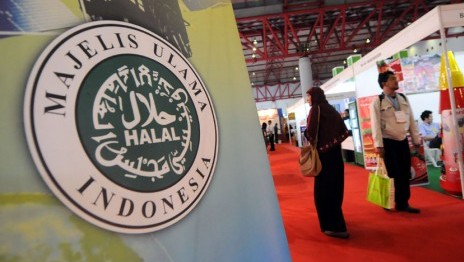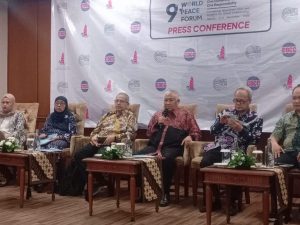Jakarta, MINA – Director of Sharia Economic Development & Halal Industry National Sharia Economic and Financial Committee (KNEKS) Afdhal Aliasar said the halal industry in Indonesia had experienced quite delight development. In fact, 2019 be a year of achievement in the Islamic economy sector and the Indonesian halal industry.
“In May 2019, the President launched the Indonesian Sharia Economy Master Plan, in which there was a strengthening of the Halal Value Chain,” Afdhal said in the Academic-Business-Government (ABG) event.
According to Afdhal, there are three things that Indonesian businesses and halal industries need to do to improve competitiveness.
The first thing is to improve the quality produced in order to meet international market standards, MINA quoted the Ministry of Religion’s official website on Friday.
Also Read: Packaging Industry Supports Halal Ecosystem
Second, to meet production capacity, so skills in production must be adequate.
Third, there must be continuity, which is the product is always produced so that it is always ready stock on an ongoing basis.
According to him, the Government is also very serious in developing Islamic economics and finance. One of the things done is to improve and develop the economic sector.
The same thing was expressed by Director General of IKM Ministry of Industry, Sri Yunianti. According to her, to penetrate the export market, industry players need to meet quality prerequisites and also the continuity of product availability.
Also Read: 7th World Halal Summit Held in Istanbul
“For exports, we must empower together so that SMIs can be competitive in exports, in addition to quality prerequisites as well as the prerequisites for production continuity,” Sri said.
According to her, currently the market share of SMI products is still dominated by the local domestic market. Of the 4.4 million SMIs in Indonesia, Sri continued, the majority are small industries (98%), the majority of home industries. And from the production of SMEs, 98% of the market is the domestic market, or meets local needs.
Sri explained that one of the obstacles faced by the halal industry was raw materials which still relied on imported materials.
“Raw materials for halal products are still mostly imported, even though we have great potential to subsidize these imported raw materials. Therefore, the Ministry of Industry is trying to increase this import substitution to be fulfilled domestically, by empowering all sectors from upstream to downstream,” he said. (R/R7/RE1)
Also Read: Halal Tourism Pays Attention to Tourist Comfort
Mi’raj News Agency (MINA)


































 Mina Indonesia
Mina Indonesia Mina Arabic
Mina Arabic